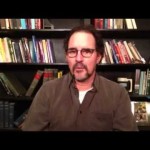We run our website the way we wished the whole internet worked: we provide high quality original content with no ads. We are funded solely by your direct support. Please consider supporting this project.

Inconceivable!
Though it’s now thirty-one years old, I’m willing to bet that the majority of you have watched the Princess Bride at least once. In fact, I’m willing to bet that a lot of you have seen it multiple times (I’ve seen at least parts of it dozens of times). It is truly one of the greatest Romantic Comedies of all time!
Anyway, if you have watched this movie, even once, you already understand why I titled this blog, “Inconceivable.” One of the most memorable aspects of this movie is that “Vizzini” (played by Shawn Wallace) exclaims “Inconceivable!” whenever something baffles him – which happens quite often in this movie. At one point, Inigo Montoya (played by a very young Mandy Patinkin, of Homeland fame) turns to Vizzini and says: “You keep using that word. I do not think it means what you think it means.”
And Inigo was right! Vizzini didn’t know what “inconceivable” means. The word doesn’t mean “surprised,” or “baffling,” or even “mysterious.” If something is truly inconceivable, it means that you cannot get a mental conception of it. It exists, but it is utterly beyond your brain’s ability to grasp.
So, I was out walking my dog this morning, and for some reason I started thinking about the fact that the brain of my cute little Morky (named “Gracie”) has absolutely no capacity to ever acquire the slightest idea of what math is. Because of the physical structure of her brain, math is a truly inconceivable reality to her.
While the human brain is millions of years more evolved than the brain of a dog, it is similarly limited by its physical structure. It’s capacity to understand is finite. Which leads to this question: If math is an inconceivable reality to dogs, what is the equivalent reality that is inconceivable to us?
Or think of it this way. My story is the meta-story for Gracie’s story. Gracie’s whole story is encompassed by my story, but, as much as I love her, her story is only a small part of my story. And while I can understand a great deal of Gracie’s story, she has no capacity to understand my story, or even of conceiving that there is meta-story to her story. She only knows her own story.
So, what is the inconceivable meta-story that our story is a part of? Unlike Gracie, we are capable of asking this question, but we are no more capable of answering it than she. The bar for what is inconceivable is higher than hers, but it is nevertheless just as impenetrable.
I think we normally assume that the only reason our knowledge is limited is that we haven’t yet found a way to access the requisite information. Such a view ignores the fact that there is a built-in impenetrable ceiling on what we can conceive, just as there is for Gracie. In reality, we have no more access to realities that transcend our brains limited capacity to conceive than Gracie has access to understanding E=MC2 .
We know only our story, and so it of course feels like we know what is going on and that we’re the main event. But let’s remember that we have no conception of what lies beyond our inbuilt ceiling of conceivability than Gracie has of math.
For all we know, the vast expanse of reality we are incapable of conceiving may render the difference between what humans and dogs can conceive almost inconsequential.
I, for one, find that profoundly humbling.
Category: Essays, General
Tags: Humility, Knowledge, Philosophy
Related Reading

Podcast: Greg Confronts Nietzsche
Greg goes toe-to-toe with Friedrich Nietzsche in this epic battle of philosophers. http://traffic.libsyn.com/askgregboyd/Episode_0313.mp3 An 1889 oil sketch of Friedrich Nietzsche on his sick bed by Hans Johann Wilhelm Olde.

On Our Limits and Our Hope
Martin Gommel via Compfight Are you worn out by the craziness of this last week? Micah J. Murray posted yesterday on the limits of what we can hold when the freight train of tragedies carried on the boxcars of social media bears down on us. There’s only so much we can process, and our emotions…

Free Will: What is a free agent?
What does it really mean to be a free agent? In this reflection, Greg offers some thoughts on free agents and how it can be that they are not exhaustively determined.

Lighten Up: Believing in Believing
OK, we don’t really think this is the difference between theology and philosophy, but how does this guy not get that not believing in believing is, itself, a belief?

Rethinking Transcendence
Going back to pre-Socratic philosophers and running through the major strands of the church’s theological tradition, the conception of how God (or, in ancient Greece, “the One”) was arrived at primarily by negating the contingent features of the world that were deemed inferior and in need of explanation. God transcended the world, for example, by…

Reflections on the Influence, and Damage, of Plato’s Timaeus 28a
The Timaeus is Plato’s account of the creation of the world. Ancient philosophers were divided as to whether Plato meant the work to be taken literally or mythically, as are modern scholars. The work was arguably the single most cited work by early church fathers. And the text I want to reflect on (28a) is…
